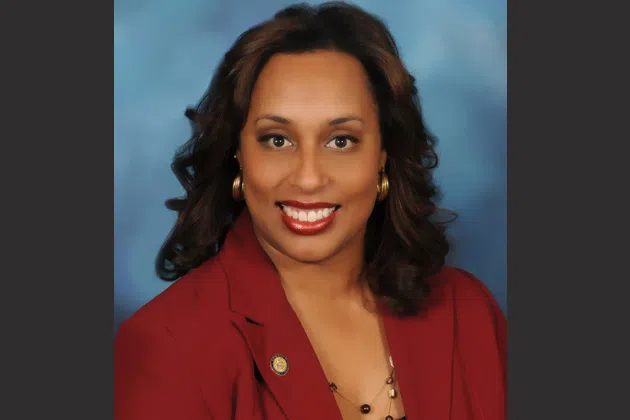
By Greg Bishop/Illinois Radio Network
SPRINGFIELD – Illinois Senators passed a new budget bill to spend more than $37 billion.
To pay for that, individual income taxes would permanently increase from 3.75 to 4.95 percent and corporate taxes would increase from 5.25 to 7 percent.
State Sen. Toi Hutchinson, D-Olympia Hills, sponsored the $5.4 billion tax hike that passed Tuesday. She understands people distrust government with more money but said time is ticking to get something to the governor’s desk “so we don’t go into a third cycle of chaos because there one thing I would say to taxpayers is there’s no managing chaos.”
State Sen. Kyle McCarter, R-Lebanon, said the retroactive tax will be punishing for families and businesses because it will nearly double the rate to make up for the first half of the year. He said lawmakers are starting from the wrong end of the spectrum in crafting a budget.
“The problem is we started on the wrong end of the spectrum. We should have started like our families start at the kitchen table and that is how much money do we have and how can we live within our means,” McCarter said.
Meanwhile, McCarter said trading reforms for tax increases isn’t fair. He said the reforms would take years for savings to be realized but the tax increases would kick in instantly.
Hutchinson said the tax increase bill has been amended many times.
“Home repair has been removed, landscaping has been removed, personal services, except for tattoos and piercings, have been removed,” she said.
During a revenue committee hearing, senators noted tattoo shops don’t have lobbies.
Springfield’s New Age Tattoo and Body Piercing owner and artist Jason Lee said that’s ridiculous.
“We’re the middle class. We’re not the upper class. We’re the middle class and the middle class always gets the neck stepped on,” Lee said. “And I think that’s just a commonality in the state of Illinois. [Other industries] obviously have the lobbyists that are fighting for them. They dump way more money into it, which I understand, if you dump more money into something you should have extra privileges, but how fair is that to us?”
Lee said the proposal to tax his industry 6.25 percent will drive people to dirty, unregulated environments and drive above-board artists out of state.
“You step on us hard enough eventually we’ll be like, ‘well, enjoy your state, but you’re not going to get anything from us anymore.’ You’re no longer going to get our state taxes because we’re not going to be here anymore. We’ll just move,” Lee said.
Representing DISH Network, David Manning opposes taxing cable TV at 1 percent and satellite TV at 5 percent, a provision that is part of Senate Bill 9. He said not only is it possibly unconstitutional to tax similar services at different rates, it will also lead to customer flight from satellite to cable.
“So you wouldn’t get the money you wanted even if it were to hold up [to a constitutional challenge],” Manning said.
The Chamber of Commerce opposed the permanent income tax increase but supported the permanent research and development tax credit.
House Speaker Michael Madigan, D-Chicago, said his appointed working group “will thoroughly review the Senate’s proposal and consider it as part of our efforts to pass a full-year balanced budget that will end the budget impasse.”
State Rep. Jeanne Ives, R-Wheaton, said she prefiled to be a sponsor of the tax increase bill “because I think there’s a bigger conversation that needs to happen before there’s a tax increase.”
Ives said she’s not on board with any tax increase.
“There’s a lot of tax increases in here we shouldn’t even have a conversation about until we talk about cutting spending and doing more for the business community rather than making them the highest tax in the United States,” Ives said.
However, she says her attempts to control it in the House could be taken away from her through procedural moves.
Meanwhile, the Senate also passed a $37.3 billion budget bill. The updated Senate Bill 6 actually adds more spending than the version that passed last week.
State Sen. Heather Steans, D-Chicago, said the latest budget bill keeps level spending for the local government distributive fund despite a 10 percent reduction passing the Senate last week. The bill also does not reduce Medicaid spending or the Community Care Program.
Steans said the amendment does include over a billion dollars in savings for pension reform. There’s also nearly a half billion in savings from state employee group health insurance but that’s pending court action on the labor dispute between the governor and AFSCME union. If the court sides with AFSCME, Steans said there would be fund sweeps.
But the amendment still spends more than what the state is currently bringing in. Overall the budget would spend $37.5 billion, which is nearly $5 billion more than the state is expected to bring in.
Republicans on the Senate floor said the movement of the tax increase and budget bills is derailing bipartisan conversations about how to best manage growing debt and economic reforms they say are needed to grow the economy.
Lawmakers have until May 31 to pass with simple majorities a balanced budget and reforms to grow the economy. The next fiscal year begins July 1.




